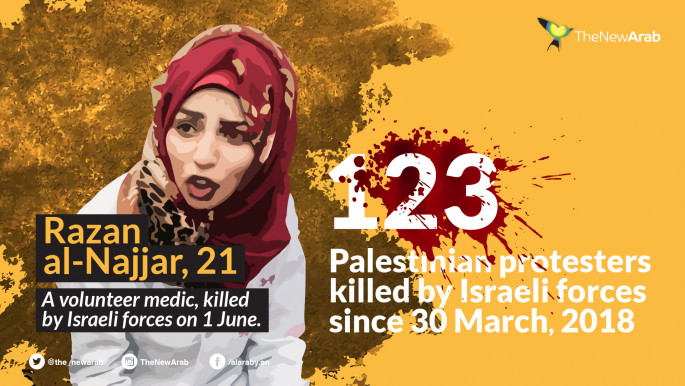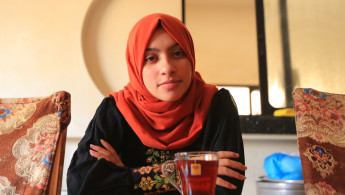Gaza's children face mental health crisis after years of war, blockade
Gaza has been under a jointly-enforced Israeli and Egyptian blockade for over a decade, resulting in the highest unemployment rate in the world for its two million residents – who are unable to leave the territory.
Israel has launched three major military operations on the besieged territory since 2008. The most recent, and deadly, operation took place in 2014 and killed over 2,200 Palestinians, including 500 children.
With up to 45 percent of Gaza's population under the age of 14, children are disproportionately impacted by war and the blockade. For many, it is all they have known in their short lives.
"The situation in Gaza has been like a pressure cooker, this generation has never known any other reality outside of the confines of Gaza," Jennifer Moorehead, Save the Children's Country Director for the Occupied Palestinian Territory, told The New Arab.
"It is quite literally the world's largest open air prison."
 |
|
British charity Save the Children conducted a survey of 150 caregivers and 150 children in Gaza and found that feelings of depression, hyperactivity, a preference for being alone, and aggression were presented by nearly all children in Gaza.
Around 63 percent of children experience nightmares, while 68 percent reported sleeping difficulties, the report found.
More than 60 percent of caregivers said the fear of bombs and the threat of conflict was the biggest source of stress for children, with aircraft sounds cited as the single biggest source of fear in 78 percent of children.
 |
I have many horrible nightmares, and a constant feeling of fear that I may be targeted with a bomb or shelled, or injured or killed - Samar, 15 |
 |
Samar, 15, remembers nothing but life under blockade, and has already lived through three wars.
"I have many horrible nightmares, and a constant feeling of fear that I may be targeted with a bomb or shelled, or injured or killed," she told Save the Children.
"This feeling has gripped me and many other children as well. There are many children who have been psychologically damaged by their fear - they are terrified, and this has greatly affected their behaviour."
More than 90 percent of the caregivers interviewed said the Israeli-Egyptian blockade has had a severe impact on their children's lives, Save the Children found.
Widespread electricity shortages – most families have less than a few hours of power per day – were cited as the single biggest factor, while over 90 percent of Gazans lack access to safe drinking water.
 |
|
In the last 15 years, the poverty rate has risen from 30 percent to more than 50 percent, while unemployment in the territory is now among the highest in the world.
Fragile resilience
Despite the huge pressure children face, Save the Children's research found that most were exhibiting signs of resilience, with 80 percent able to speak to friends and family and 90 percent feeling supported by their parents.
"Much of children's security was related to a sense of stability that their families were able to offer, with more than 80 percent of the 150 children interviewed saying they did not feel safe being away from their parents," said Dr Marcia Brophy, a Senior Mental Health Advisor for Save the Children in the Middle East.
But experts warn that continued conflict could have a severe impact on the coping mechanisms of an already traumatised population.
The British charity's research was carried out before the Great Return March demonstrations began on 30 March.
 |
With up to 45 percent of Gaza's population under the age of 14, children are disproportionately impacted by war and the blockade |  |
Since the protests began, more than 120 Palestinians have been killed by Israel and over 13,000 injured.
"Such a loss of family security in an already insecure environment risks pushing children to the brink of a mental health crisis and poses a significant threat to children's fragile coping mechanisms," Dr Brophy said.
"This places them at high risk of toxic stress, the most dangerous form of stress response caused by a strong or prolonged exposure to adversity."
Moorehead says that any additional conflict could have a "profound impact" on children and family structures, whose resilience is already fragile.
"The children of Gaza are resilient, but they must urgently receive more support to overcome their traumatic experiences," she said.
"Only by doing this immediate step, as well as focusing on ending the blockade and finding a durable and just solution, will children have a more hopeful future."





 Follow the Middle East's top stories in English at The New Arab on Google News
Follow the Middle East's top stories in English at The New Arab on Google News


